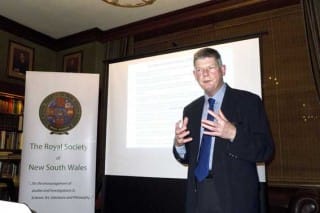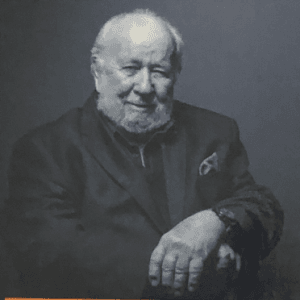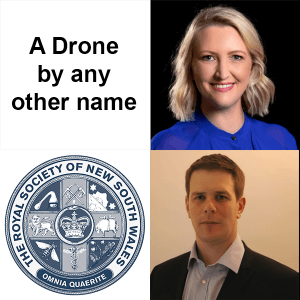
“In an analogue world, envisioning the digital future: Paul Otlet, a
forgotten forefather of today’s ‘information society’ ” – Emeritus
Professor Boyd Rayward
Emeritus Professor Boyd Rayward gave a fascinating talk about someone whom he styled as ‘forgotten’, but who in reality had never been heard of by most members of the audience, the Belgian Paul Otlet (1868 – 1944). A lawyer by profession, an activist for peace in the very troubled times of Europe in the first half of the 20th century, Otlet had the revolutionary idea of collating and indexing all knowledge in a way that could be augmented, updated and proliferated world wide. As new technology came along (telegraph, telephone, radio, etc.) he embraced each into his universal knowledge network.
In 1910, Otlet and Henri La Fontaine first envisioned a “city of knowledge”, which Otlet originally named the “Palais Mondial” (“World Palace”, later called the Mundaneum), that would serve as a central repository for the information, and “radiate knowledge to the rest of the world”. The many world cities that were designed, were mostly never built, and Otlet’s own offices were closed down by the Belgian Government in 1934.
His well-known (until recently) legacy, was the invention of the 3 x 5 inch standard index card, found in every library until the modern computer era. There were 15 million of them in the Mundaneum before it closed in 1934. There are just over 30.2 million pages in Wikipedia as of 21 May, 2013.
A museum was opened in 1988 in Mons, Belgium as a kind of recreation of the Mundaneum and repository of the papers of Otlet (and La Fontaine). Professor Rayward divides his time between Belgium, Illinois (where he is professor emeritus) and Sydney, and continues to research into the life of this amazing and far-sighted man of the world.














